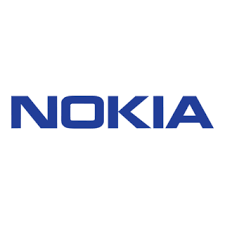Nokia’s first-quarter financial results for 2025 paint a complex picture marked by geopolitical and economic headwinds, alongside strategic moves to position the company for future growth. The Finnish telecom giant reported a net loss of 68 million euros, a stark contrast to the 438 million euro profit recorded in the same period the previous year. This downturn is attributed to the volatile global trade environment, particularly the impact of US tariffs, which are creating uncertainty and potential disruptions in the market. While acknowledging the challenges posed by these escalating trade tensions, Nokia’s leadership maintains a cautiously optimistic outlook, anticipating a relatively resilient market response.
The imposition of a 10 percent tariff on global imports by the US administration, albeit with temporary exemptions for certain countries including EU members, casts a shadow over Nokia’s immediate prospects. While the company foresees a potential impact of 20 to 30 million euros on its comparable operating profit in the second quarter due to the current tariff regime, it emphasizes early customer feedback suggesting a degree of market stability. This resilience stems from the essential nature of telecommunications infrastructure and services, which are less susceptible to fluctuations in consumer spending compared to other sectors.
Despite the net loss, Nokia’s first-quarter net sales reached 4.4 billion euros, a marginal decline of 1 percent compared to the previous year. This relative stability in sales figures suggests that the company is navigating the challenging trade environment with a degree of success. Nokia’s strategic focus on key growth areas, including Network Infrastructure, Cloud and Network Services, and Mobile Networks, underscores its commitment to long-term sustainable growth. These segments are expected to be the primary drivers of future revenue generation, as the global demand for advanced telecommunications infrastructure and cloud-based solutions continues to expand.
A significant development accompanying Nokia’s quarterly report is the announcement of a contract extension with T-Mobile US. This agreement not only solidifies Nokia’s position in the US market but also provides a positive signal regarding the stabilization of its Mobile Networks business. The deal with T-Mobile US reflects the ongoing demand for Nokia’s 5G technology and expertise, as telecommunications operators around the world invest in upgrading their networks to meet the growing demand for high-speed data connectivity. This partnership reinforces Nokia’s commitment to innovation and its ability to secure strategic collaborations with leading industry players.
Looking ahead to 2025, Nokia projects growth fueled by its strategic focus areas. The company anticipates increased demand for its Network Infrastructure solutions, driven by the global rollout of 5G networks and the increasing need for robust and reliable connectivity. Furthermore, the expansion of Cloud and Network Services is expected to contribute significantly to Nokia’s future revenue streams, as businesses and organizations increasingly migrate their operations to cloud-based platforms. The continued development and deployment of advanced mobile network technologies will also play a crucial role in driving Nokia’s growth trajectory.
In summary, Nokia’s first-quarter results present a mixed picture, reflecting the challenges posed by the volatile global trade environment while highlighting the company’s strategic positioning for future growth. The net loss, attributed to tariff impacts, is tempered by the relative stability in net sales and the positive momentum generated by the T-Mobile US contract extension. Nokia’s focus on Network Infrastructure, Cloud and Network Services, and Mobile Networks underscores its commitment to innovation and its anticipation of future market expansion. While the short-term outlook remains uncertain due to ongoing trade tensions, Nokia’s long-term prospects appear promising, underpinned by its technological expertise, strategic partnerships, and the growing global demand for advanced telecommunications solutions.














